Kozhakattai is a peculiar sweet or savory rice dish from South India. It is made specifically for festivals like Varalakshmi Vradam (celebrating the Goddess Lakshmi) or Vinayaka chaturthi or Ganesha Pooja (the birthday of the God Ganesha). In my childhood days at Shimoga (Karnataka) after Ganesha Pooja, after eating a good number of kozhakattai at home, we as children used to make visits to many homes and temples possible where Ganesha Pooja was celebrated. The more Ganesha Pooja visited, the more blessed and powerful we felt. The next day at school, we discussed with our classmates who was the most powerful of us all!
Kozhakattai, as I mentioned in the beginning of this post, is a peculiar, multi-step dish. It is prepared by cooking a rice batter in low flame until it thickens. Then, the resulting dough is flattened, filled with sweet or savory stuffings and steamed. The resulting filled rice pouches are called kozhalattai. The recipes are definitely worth the effort. Like the old Indian advertisement jingle "No one can eat just one" :)
Given below are the recipes for sweet/savory and a baby-savory version called "ammani" kozhakattai. I have described the modern and traditional method of making these.
SWEET COCONUT KOZHAKATTAI
(Tamil to English: Kozhakattai - sweet or savory-filled rice pouches)
INGREDIENTS FOR 15 Nos
Raw Rice - 1 cup
Fresh grated coconut - 2 cups
Jaggery powder - 1 cup
Cardamom - 1 piece
COCONUT JAGGERY FILLING (POORNAM):
1. Boil jaggery powder with ¼ cup water.
2. Remove the sediments by filtering through a sieve.
3. Return the filtered syrup to the stove, mix it with the grated coconut and allow it to thicken by stirring continuously.
4. The resulting mixture should be as shown.
RICE BATTER/DOUGH
1. Soak the rice in water for an hour.
2. Grind the rice smoothly by adding some water.
(In the traditional approach the water is brought to a boil, then rice powder added to it and cooked into a dough by stirring continuously)
3. Add 1½ cup of water, 1tsp oil and a pinch of salt (salt is optional).
4. Pour the mix in a thick bottom kadai (skillet).
5. Cook on a low flame by stirring continuously until you get a thick dough and it is almost 70% cooked (as shown in the picture above).
6. Cover with a lid and keep aside for 10 minutes.
7. The texture of the dough should be soft after 10 minutes. If not sprinkle some warm water on the top and knead into an even dough as shown below.
8. Divide the dough and make tomato-sized balls.
9. Flatten the balls using a chapatti maker (tortilla maker) and place the coconut jaggery filling inside.
10. Alternatively, apply oil drops on your palms to lubricate. Take a rice ball and make a depression, by pressing the centre of the rice ball with your thumb finger. With the help of the other three fingers, lightly press and rotate until you get a cup shape (as shown above).
.
10. Bring the edges together as shown.
11. Steam cook for 3 to 5 minutes. Cool for 2 minutes and serve.
SAVORY (SALT) KOZHAKATTAI
INGREDIENTS FOR 15 Nos
Raw Rice - 1 cup
Urid dal - 1 cup (50g)
Grated coconut - 4 tsp
SEASONING FOR SAVORY (SALT) KOZHAKATTAI:
Mustard seed ¼ tsp, Urid dal ¼ tsp, Asafoetida, pieces of green chili 1or 2 and salt.
METHOD: Rice batter is same as mentioned in sweet kozhakattai. Stuffing and folding is different. Please see the photograph.
POORNAM FOR SALT KOZHAKATTAI
1. Wash and soak the urid dal for ½ hour.
2. Drain completely and grind coarsely with chili and rice.
3. Heat oil 2 tsp, and season with mustard seed, urid dal, asafoetida, green chili.
4. Add the ground mixture and salt.
5. Sauté continuously with manual mixing until the mixture is cooked.
6. Add the grated coconut and mix well.
7. The resulting mixture should be semi-dry as shown above.
Kids sometimes eat up the poornam alone, and from the left over rice dough we can make a delicious ammani kozhakattai.
AMMANI KOZHAKATTAI
1. Make mini balls with the left over kozhakattai rice dough. Please see the photograph below.
2. Season with 1tsp oil, mustard seeds, green chili and curry leaves.
3. Add the mini balls, grated coconut and salt.
4. Sauté for two minutes and serve
5. If the savory urid dal stuffing is left over, feel free to add it at the end.
Happy Cooking,
-Jay

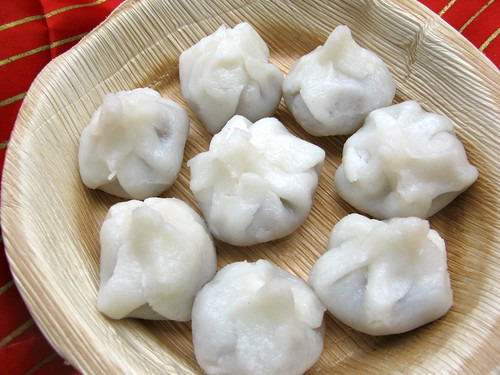
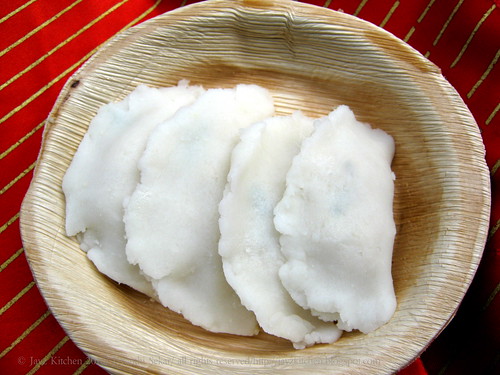
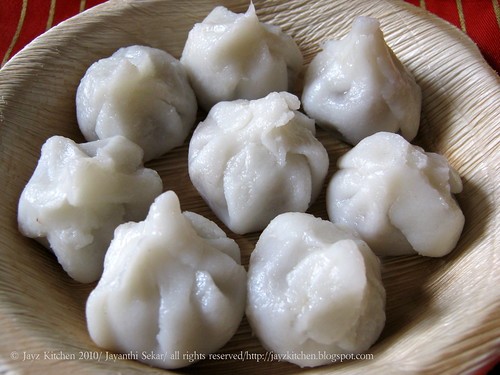
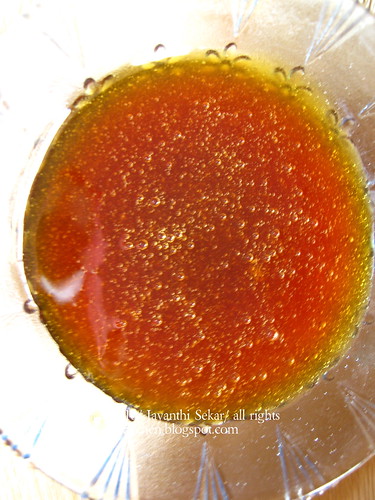
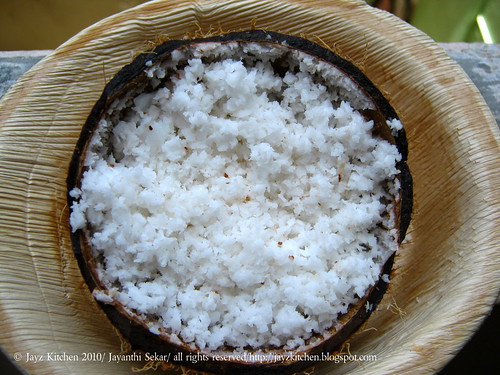
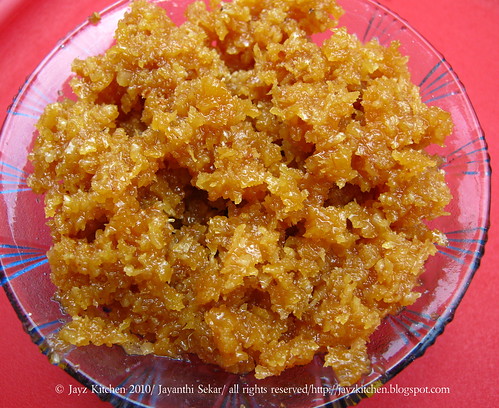
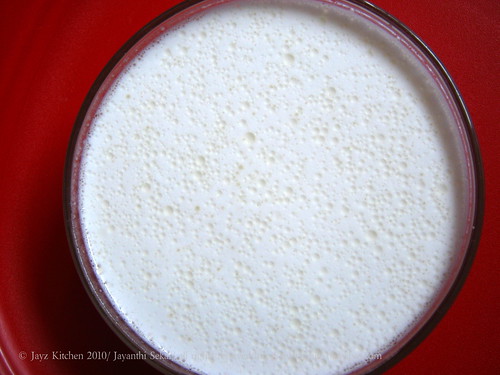
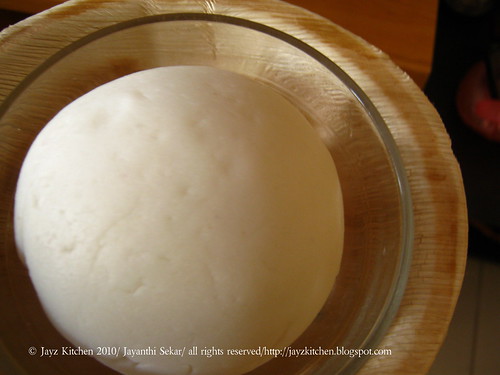
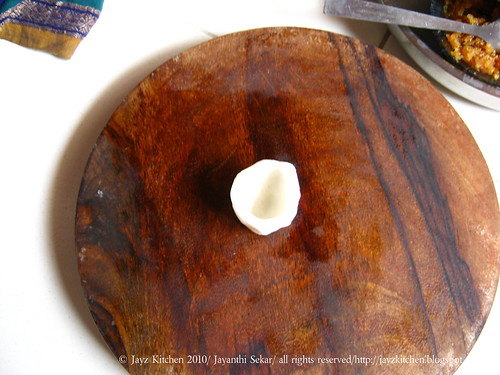
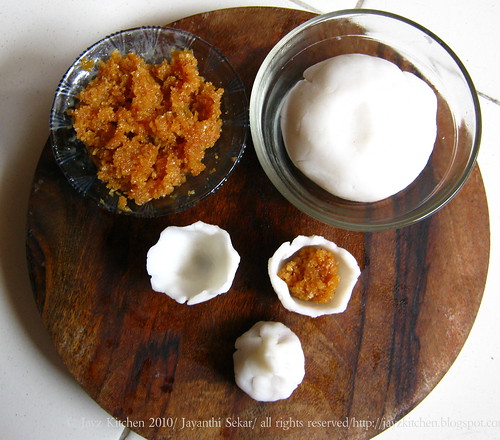
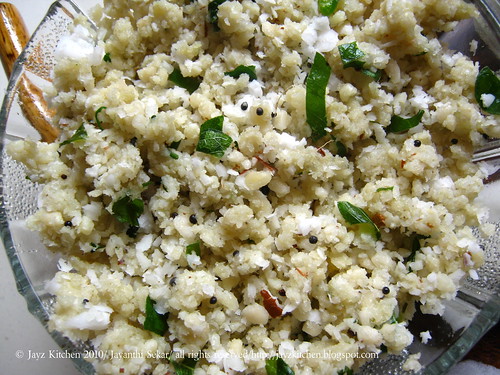
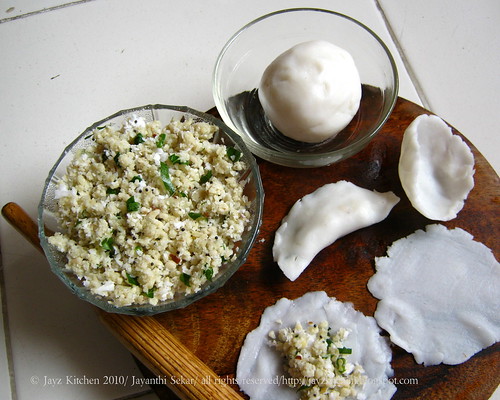
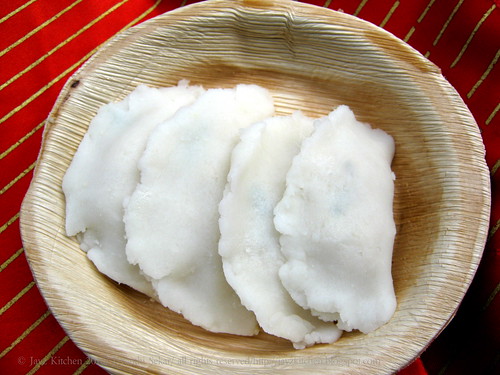
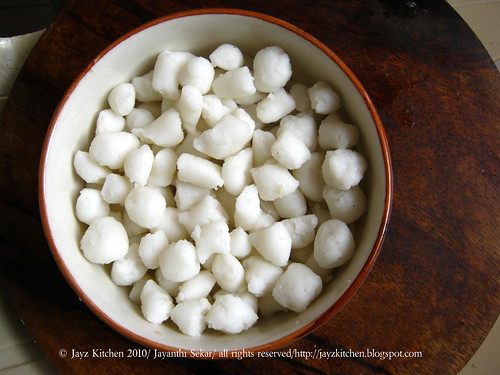
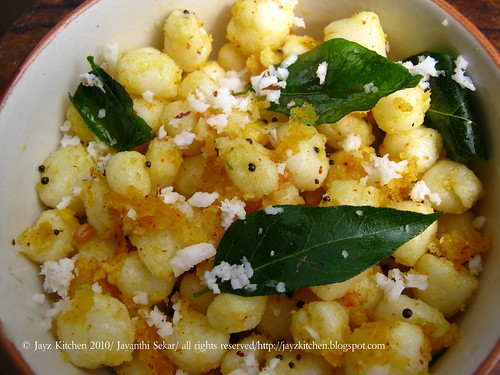
Posted right on time! would certainly be useful:)
ReplyDeleteGorgeous clicks of kozhukattais I have ever seen! Lovely,well explained post!
ReplyDeleteFirst time here..really beautiful and tasty, great click too...
ReplyDeletehttp://treatntrick.blogspot.com
kozhakattai's look really yummy and nice clicks.
ReplyDeletehttp://iyercooks.blogspot.com
Well explained and fantastic photos
ReplyDeletehttp://shanthisthaligai.blogspot.com/
Very kind of you all, fortunately I was in Mumbai for Ganesh Chathrthi and had wonderful darshan of lot of Ganpas! Happy Cooking!
ReplyDeleteJaynthi Sekar
the sweet kolakattai i did was some what liquid since the jaggery melted while cooking
ReplyDelete